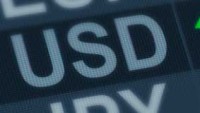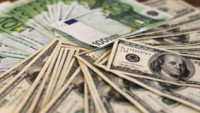 Most foreign exchange majors stayed within narrow ranges during today’s Asian session as traders were awaiting key business survey data out of the Eurozone and the United States later in the day.
Most foreign exchange majors stayed within narrow ranges during today’s Asian session as traders were awaiting key business survey data out of the Eurozone and the United States later in the day.
The only big mover was the New Zealand dollar, which continued to post heavy losses as the country was seen getting a coalition government whose policies could have a negative impact on the currency. In particular, the new Labor-led government could push for the Reserve Bank to include unemployment as well as inflation in its mandate. According to analysts, this could lead to a delay of higher interest rates from the RBNZ. The new government would also raise the minimum wage, curb immigration and put limits on foreign buyers of housing. This led the kiwi dollar to a fresh 5-month low against the greenback at 0.6918; well below the psychological 70 cent mark which had acted as support before news of the outcome of the coalition talks broke. The kiwi’s daily losses were about 0.6%.
The aussie also sold off sharply against the US dollar to trade at 0.7780; losing around 0.3% on the day.
Concerning the US dollar, there was little news flow as the market was awaiting President Trump’s choice for the nomination of Federal Reserve Chair. The three leading candidates were the current Chair Janet Yellen, Stanford Professor John Taylor and Fed Governor Jerome Powell. A decision would be taken “very soon” according to Trump. The current Fed Chair will step down in February of 2018.
Traders were hesitant of pushing the euro too much in one direction ahead of the European Central Bank meeting on Thursday when the ECB is expected to announce its plans for a further reduction in monthly asset purchases in 2018. There were important developments ahead for Catalonia, where the crisis seems to be escalating after Madrid decided to sack the regional government and call for regional elections during the weekend. Spain’s national parliament was set to vote on revoking the region’s autonomy on Friday. In return, Catalan independence leaders called for disobedience to Madrid’s rule in that event. Political uncertainty was seen as weighing on the euro, although at 1.1748 the single currency did not appear too worried about the repercussions from the crisis.
Although US stock indices closed in the negative the previous day, Japan’s Nikkei extended its record run to 16 consecutive days of gains. The victory by Prime Minister Abe during the weekend’s elections seems to have boosted sentiment and optimism that stimulus policies will continue. The dollar rebounded versus the yen to come back to around 113.69 from a session low of 113.29.
Gold gained to around $1280 an ounce as it took advantage of some modest dollar weakness during the Monday’s US session.
Looking ahead, after the release of Eurozone PMIs, the US session will feature the Markit PMI, Richmond Fed manufacturing PMI and API crude oil inventories later.
Origin: XM












